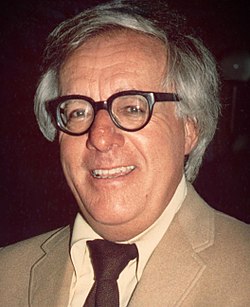Ray Bradbury Quote
The feeding of the Muse then, which we have spent most of our time on here, seem to me to be the continual running after loves, the checking of these loves against one's present and future needs, the moving on from simple textures to more complex ones, from naive ones to more informed ones, from nonintellectual to intellectual ones. Nothing is ever lost. If you have moved over vast territories and dared to love silly things, you will have learned even from the most primitive items collected and out aside in your life. From an ever-roaming curiosity in all the arts, from bad radio to good theatre, from nursery rhyme to symphony, from jungle compound to Kafka's Castle, there is basic excellence to be winnowed out, truths found, kept, savored, and used on some later day. To be a child of one's time is to do all these things.
The feeding of the Muse then, which we have spent most of our time on here, seem to me to be the continual running after loves, the checking of these loves against one's present and future needs, the moving on from simple textures to more complex ones, from naive ones to more informed ones, from nonintellectual to intellectual ones. Nothing is ever lost. If you have moved over vast territories and dared to love silly things, you will have learned even from the most primitive items collected and out aside in your life. From an ever-roaming curiosity in all the arts, from bad radio to good theatre, from nursery rhyme to symphony, from jungle compound to Kafka's Castle, there is basic excellence to be winnowed out, truths found, kept, savored, and used on some later day. To be a child of one's time is to do all these things.
Related Quotes
This is a day of celebration!Today, we are divorcing the pastand marrying the present.Dance,and you will find Godin every room.Today, we are divorcing resentmentand marrying forgiveness.Sing,and God w...
About Ray Bradbury
Bradbury is best known for his novel Fahrenheit 451 (1953) and his short-story collections The Martian Chronicles (1950), The Illustrated Man (1951), and The October Country (1955). Other notable works include the coming of age novel Dandelion Wine (1957), the dark fantasy Something Wicked This Way Comes (1962) and the fictionalized memoir Green Shadows, White Whale (1992). He also wrote and consulted on screenplays and television scripts, including Moby Dick and It Came from Outer Space. Many of his works were adapted into television and film productions as well as comic books. Bradbury also wrote poetry which has been published in several collections, such as They Have Not Seen the Stars (2001).
The New York Times called Bradbury "An author whose fanciful imagination, poetic prose, and mature understanding of human character have won him an international reputation" and "the writer most responsible for bringing modern science fiction into the literary mainstream".
